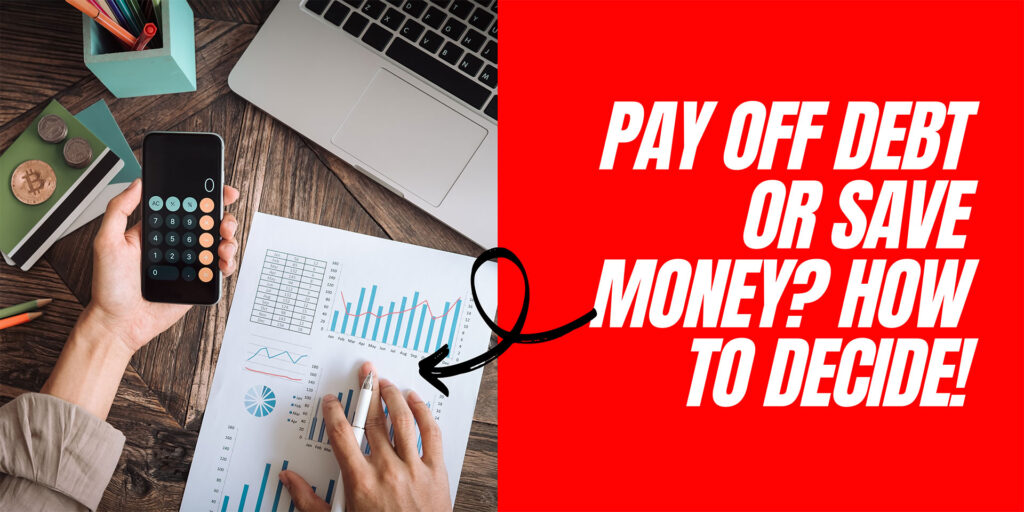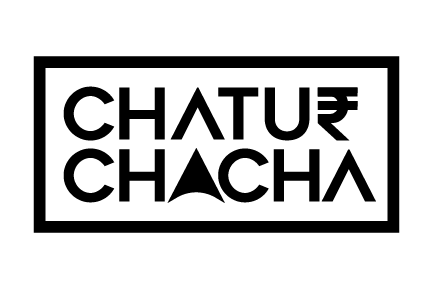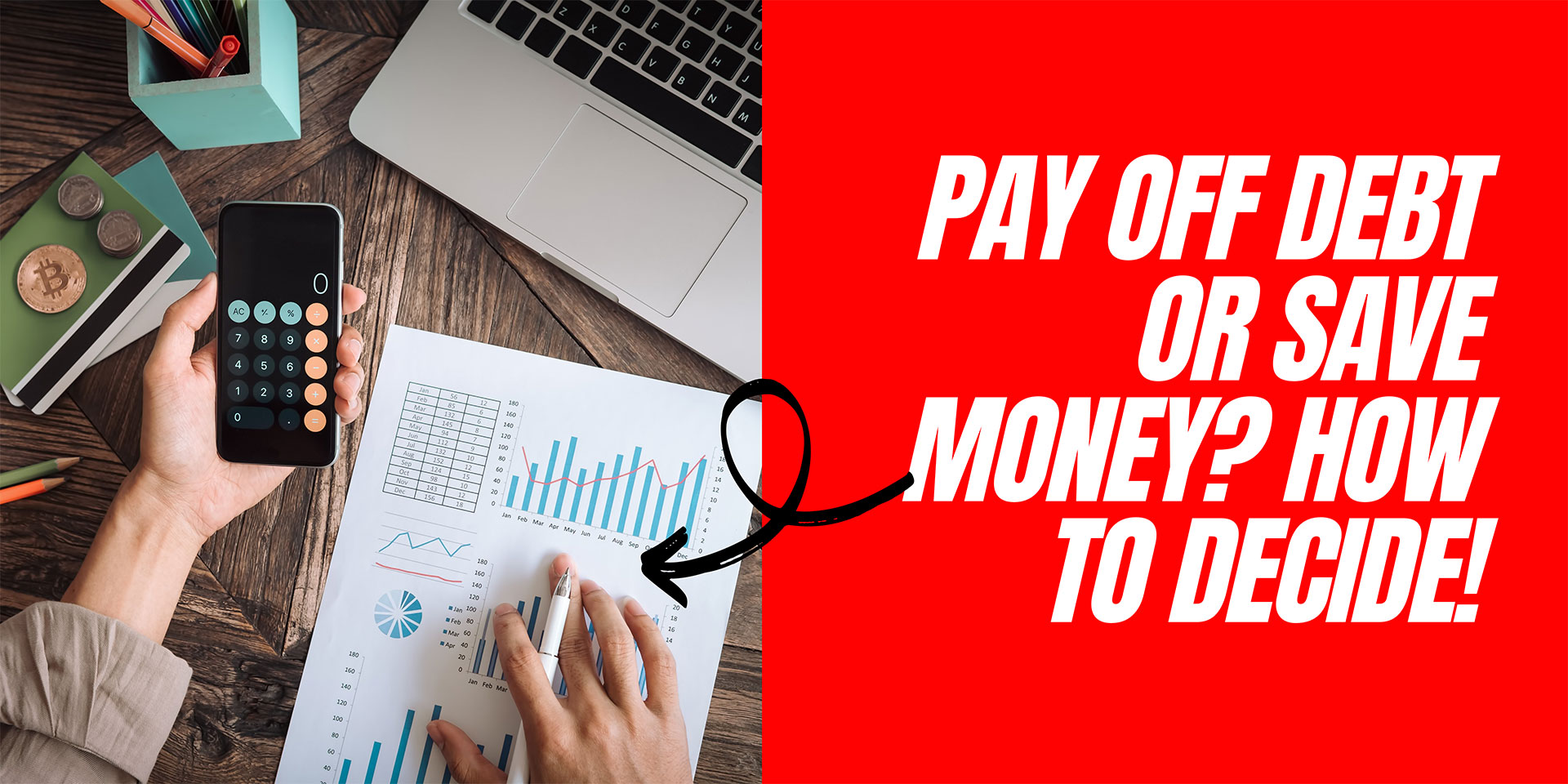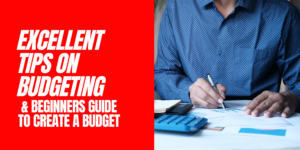
Any type of debt might be daunting if it prevents you from increasing your savings. This position raises an important question: should you pay off debt first and then start saving, or should start saving right away and postpone the debt payoff for a while?
Striking a balance between saving and debt repayment can be the simplest answer. You may be paying more interest than you must, but having enough money put aside to handle unexpected needs can keep you out of debt. Having enough money within the bank also gives you peace of mind. Any method that leads a personality’s savings to fall below a particular level is unlikely to form some individual happiness. Saving money and paying off debt at an identical time could also be the simplest option for them.
To obtain excellent financial health, you must pay off debt and save money for emergencies. If you’re on a tight budget, you might be thinking which one to start with. Understanding the advantages of both will assist you in developing a tailored plan for managing your money and achieving your financial objectives.
There are a few winning ways for dealing with debt while still saving money. The idea is to strike a balance where you can pay off debts while still saving money.
Table of Contents
Benefits Of Debt Repayment
There are several number of compelling reasons to pay down debt as soon as possible:
Over time, you can minimize your interest expenses. If you have high-interest credit card debt, this is very useful. It could be able to assist you in boosting your credit score. Once you’ve paid off your debt, you’ll be able to focus entirely on saving and other financial objectives. Getting out of debt may relieve you of a lot of stress, both emotionally and mentally.
Debt is not just a financial hardship, but it may also affect your credit score and your mental health. If you have other financial objectives in mind, especially ones that will necessitate strong credit, such as buying a home, it may be advisable to prioritize debt repayment.
Some individuals choose to start with the accounts with the greatest interest rates, while others prefer to start with the accounts with the smallest balances (to eliminate them faster and feel more productive). Make a couple of alternative payback plans to see which one works best for you, and then stick with it. After you’ve paid off your debt, you may put your monthly contributions into a savings account.
Benefits Of Saving First
Getting a head start on saving, on the other hand, has various advantages:
The sooner you start, the longer you’ll have to benefit from compound interest. Instead of waiting until your debt is settled, you may work toward your financial objectives on your own timetable. If an unforeseen need arises, having some readily available money might assist you avoid taking on additional debt.
Compound interest is perhaps the most compelling reason to begin using money-saving strategies as soon as feasible. The interest generated on your interest in a savings account, money market account, CD, or investment account is referred to as compound interest. The longer time you give your money to compound, the more you can make it increase.
Getting a head start on saving can also help you reach other long-term objectives, such as purchasing a home, traveling, or getting your children’s education fund off to a good start.
Finally, saving money might serve as a financial safety net. Consider how you’d deal with an unplanned auto repair or a job loss, for example. You may need to utilize a high-interest credit card or loan to bridge the gap if you don’t have any emergency funds. If you’re adding to your debt in the process, this might be counter-intuitive to your debt-reduction strategy.
Are You Able To Pay Off Debt While Still Saving?
It is feasible to pay off debt and save money at the same time, but it takes organization, strategy, and a change in spending patterns.
The first step is to look over your budget to discover how much you’re paying toward debt each month. Is there a method to reduce the cost of your debt so that you can pay it off faster? Shifting large credit card debt to a new card with 0% Interest, or refinancing college debt, for example, might help you save money on interest and pay more toward the total owing. After that, consider whether you can save money by reducing or eliminating specific costs.
Always make minimal payments on all debts on schedule, regardless of your other financial commitments. The next stage should be to create a financial buffer so that you have some wriggle space in your budget to meet unforeseen costs. Before you move on to further investment or debt goals, you should first pay down any credit card debt and fully fund your emergency savings account.
Create An Emergency Fund
Though you may want to pay off debts as quickly as possible, it’s critical to set aside money for an emergency fund—even if it’s only a modest amount—in case an unforeseen need develops. A trip to the emergency room or the loss of a spouse’s employment can wreak havoc on your finances. You may feel compelled to use high-interest credit cards or personal loans to meet unexpected bills if you don’t have dedicated resources to draw from during a crisis. However, doing so will just add to your debt and exacerbate the situation.
It’s a good idea to have six months’ worth of costs saved in an emergency fund, but if you’re also dealing with debt or other financial difficulties, this may not be feasible. If you’re having trouble saving at the suggested rate, try saving three months’ worth of costs. It’s better to have some money set aside for emergencies than none at all, and you can always focus on saving once you’ve paid off your debt.
Open a high-interest savings account while you start saving for an emergency fund so your money may grow when you switch your emphasis to debt repayment. While you’re working on building your emergency fund, you should also make at least the minimum payments on your bills to avoid late penalties and possible credit harm.
Pay Off Debt
Individual debt repayment techniques will differ depending on the sort of debt a person has. If you primarily have student loans, for example, you may be able to seek delay, forbearance, or loan forgiveness from your lender. These options, however, will not be available to people who are in credit card debt.
Regardless of the amount you owe, there are two popular repayment strategies: the snowball approach and the avalanche method. Even if they are distinct, both will eventually assist you to pay off debt.
Snowball Method
The snowball technique is ranking your obligations by total amount and paying off the least ones first, gradually working your way up to the most expensive. The psychological benefits of debt repayment are the emphasis of this technique. Many people find that paying little sums early gives them a sense of accomplishment and helps them to feel less stressed about their debt.
Avalanche Method
Instead of ranking your loans by total cash amount, you use the avalanche approach to rank them by interest rates. Then you concentrate on paying off the debts with the highest interest rates first, while paying the minimum on all other loans each month. This is especially beneficial if you have credit card debt in addition to student loans or other forms of debt, because credit card interest rates are often higher.
For whichever approach you adopt, try to pay more than the minimum amount each month. One easy strategy is to apply any unexpected funds, such as a bonus or a birthday present from a family member, to debt repayment. This method also works if you spend less than you expected or have excess funds in your monthly budget.
Conclusion : Find A Balance That Is Right For You
The issue for the majority of people is that their debts are so large in comparison to their monthly income. And paying the amount down to zero will take a long time. It’s not a viable choice to simply put off saving while you pay off your obligations. Even if they have a lot of debt, families want to be able to buy a house, have a kid, pay for education, or help ill relatives, and this demands a lot of cash.
As a result, it’s critical to establish a balance that works for you and your family, come up with a strategy, and adhere to it. Prioritize paying off major debt while contributing small amounts to your savings account. Once you pay off debts, you may start saving more aggressively by donating the entire amount you were putting toward debt each month.
Long-term debt isn’t a good option since it will cost you more money in interest and will slow down your progress toward your financial goals. You can’t afford to wait to save, but you also can’t afford to do so. When it comes to determining whether to pay off debt or save money, a balanced strategy that combines both can be the best option.




